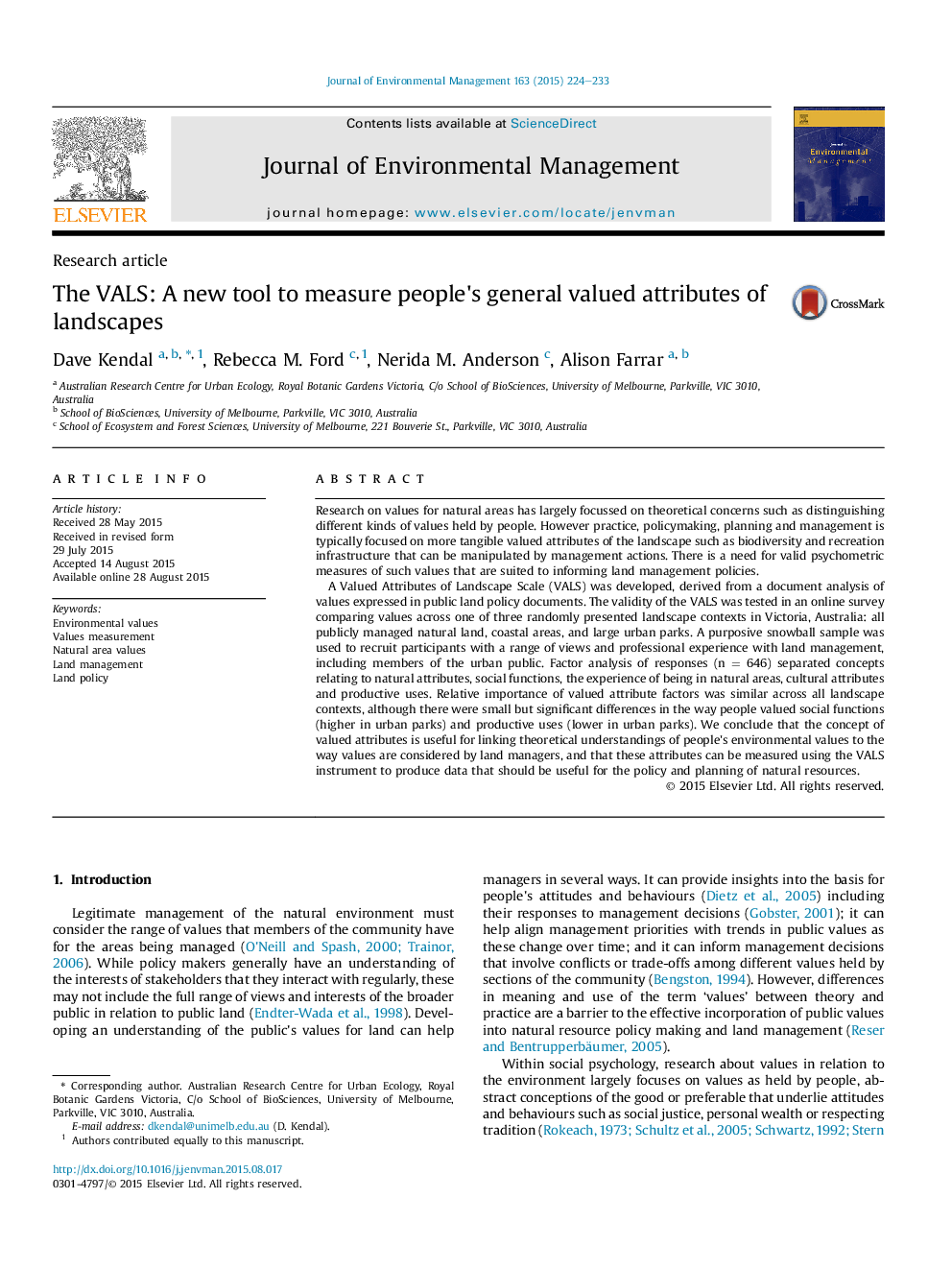| Article ID | Journal | Published Year | Pages | File Type |
|---|---|---|---|---|
| 1055530 | Journal of Environmental Management | 2015 | 10 Pages |
•Valued Attributes of Landscape connect social and management understanding of value.•A scale to measure people's Valued Attributes of Landscape (VALS) was developed.•Five value groups were found: Natural, Social, Experiential, Cultural and Productive.•There were some variation in values across different contexts.•Values were sensibly related to existing environmental value scales.
Research on values for natural areas has largely focussed on theoretical concerns such as distinguishing different kinds of values held by people. However practice, policymaking, planning and management is typically focused on more tangible valued attributes of the landscape such as biodiversity and recreation infrastructure that can be manipulated by management actions. There is a need for valid psychometric measures of such values that are suited to informing land management policies.A Valued Attributes of Landscape Scale (VALS) was developed, derived from a document analysis of values expressed in public land policy documents. The validity of the VALS was tested in an online survey comparing values across one of three randomly presented landscape contexts in Victoria, Australia: all publicly managed natural land, coastal areas, and large urban parks. A purposive snowball sample was used to recruit participants with a range of views and professional experience with land management, including members of the urban public. Factor analysis of responses (n = 646) separated concepts relating to natural attributes, social functions, the experience of being in natural areas, cultural attributes and productive uses. Relative importance of valued attribute factors was similar across all landscape contexts, although there were small but significant differences in the way people valued social functions (higher in urban parks) and productive uses (lower in urban parks). We conclude that the concept of valued attributes is useful for linking theoretical understandings of people's environmental values to the way values are considered by land managers, and that these attributes can be measured using the VALS instrument to produce data that should be useful for the policy and planning of natural resources.
Graphical abstractFigure optionsDownload full-size imageDownload as PowerPoint slide
